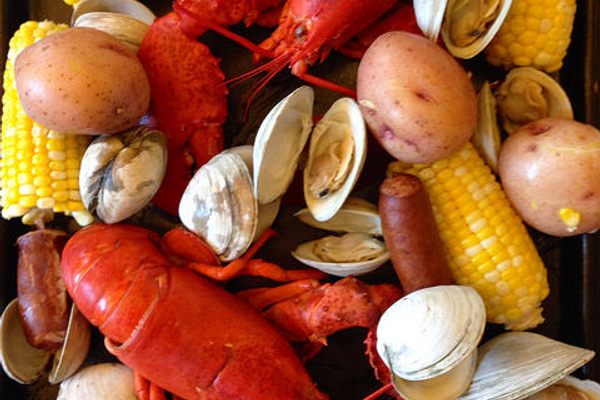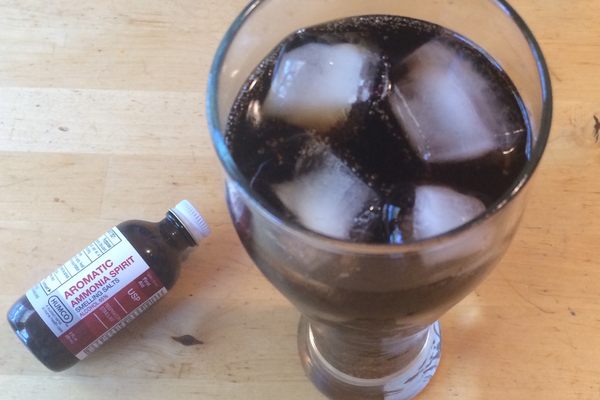Moxie means force of character, determination, or nerve. It’s the perfect name for the cure-all drink that its inventor claimed “cured drunkards by the thousands, effectively too; made more homes happy; cured more nervous, prostrated, overworked people; prevented more crime and suffering in New England than all other agencies combined.”
Moxie is such an excellent name because the descriptive word is actually a product of the drink’s marketing. Moxie Nerve Food, the original name for the beverage, was invented before moxie was conversationally used at all. In fact, the first recorded use of the word was in 1930, while the beverage was invented and patented in 1885.
When Dr. Augustin Thompson of Union, Maine, noticed a lack of medicinal elixirs that didn’t use cocaine or alcohol, he set out to to create his own. He used a medley of herbs, relying on gentian root as the unique ingredient in his proprietary blend. (He said his friend Lieutenant Moxie sent gentian root from his posting in South America, but the lieutenant was entirely fictional.) Gentian root is responsible for Moxie’s characteristically bitter, polarizing aftertaste—the same distinctive flavor in Angostura bitters. He also added sassafras, which was banned in 1960 by the FDA for its carcinogenic properties.
In 1906, when the Pure Food and Drug Act prevented Moxie from being sold as a medicinal product, it was reborn as a soft drink likened to “root beer on steroids.” Moxie’s marketing team built a 32-foot-tall bottle for the New England Food Fair that same year, and the bottle still stands in Maine today.
Moxie’s new identity as a soda did nothing to derail its popularity, and in 1920, it actually outsold Coca-Cola. Calvin Coolidge, the 30th president of the United States, celebrated his inauguration with a Moxie and publicly touted it as his favorite drink. By 1930, Moxie had come to represent “pep and vigor,” and it slipped into the American colloquial vocabulary.
The Great Depression sent Moxie’s advertising and distribution into a downward spiral, and its popularity declined until the drink slipped into relative obscurity. Boston Red Sox slugger Ted Williams gave the brand one last boost in the 1950s, revitalizing sales through radio and print advertisements that solidified a die-hard fan base in New England. But Coca-Cola and Pepsi had long since overtaken Moxie.
Even though Moxie sells well under a million cases per year (by comparison, Coca-Cola sales are in the billions of cases), it became Maine’s official soft drink in 2005. America may have forgotten Moxie, but Maine still hosts festivals, chugging contests, and historical tours that keep its legacy alive.
Written By
 rachelrummel
rachelrummel
Sources
- drinks.seriouseats.com/2010/12/moxie-official-soda-soft-drink-of-maine.html
- www.word-detective.com/111097.html
- www.merriam-webster.com/dictionary/moxie
- www.jphs.org/20thcentury/moxie-soda-outsold-coca-cola.html
- www.atlasobscura.com/places/moxie-bottle-house
- books.google.com/books?id=MIUcCgAAQBAJ&pg=PA94&lpg=PA94&dq#v=onepage&q&f=false
- www.google.com/url?sa=t&rct=j&q=&esrc=s&source=web&cd=4&ved=0ahUKEwjqtLqZmpbWAhVC44MKHUMrBkQQFgg4MAM&url=http%3A%2F%2F
- www.newenglandhistoricalsociety.com/moxie-path-good-life/
- www.nytimes.com/2003/07/23/dining/surviving-by-fizzy-logic.html
- archive.boston.com/business/articles/2007/08/05/can_a_bitter_taste_find_sweet_life_again/
- blogs.harvard.edu/desultor/2003/08/19/because-you-asked-moxy-etymology/comment-page-5/

















